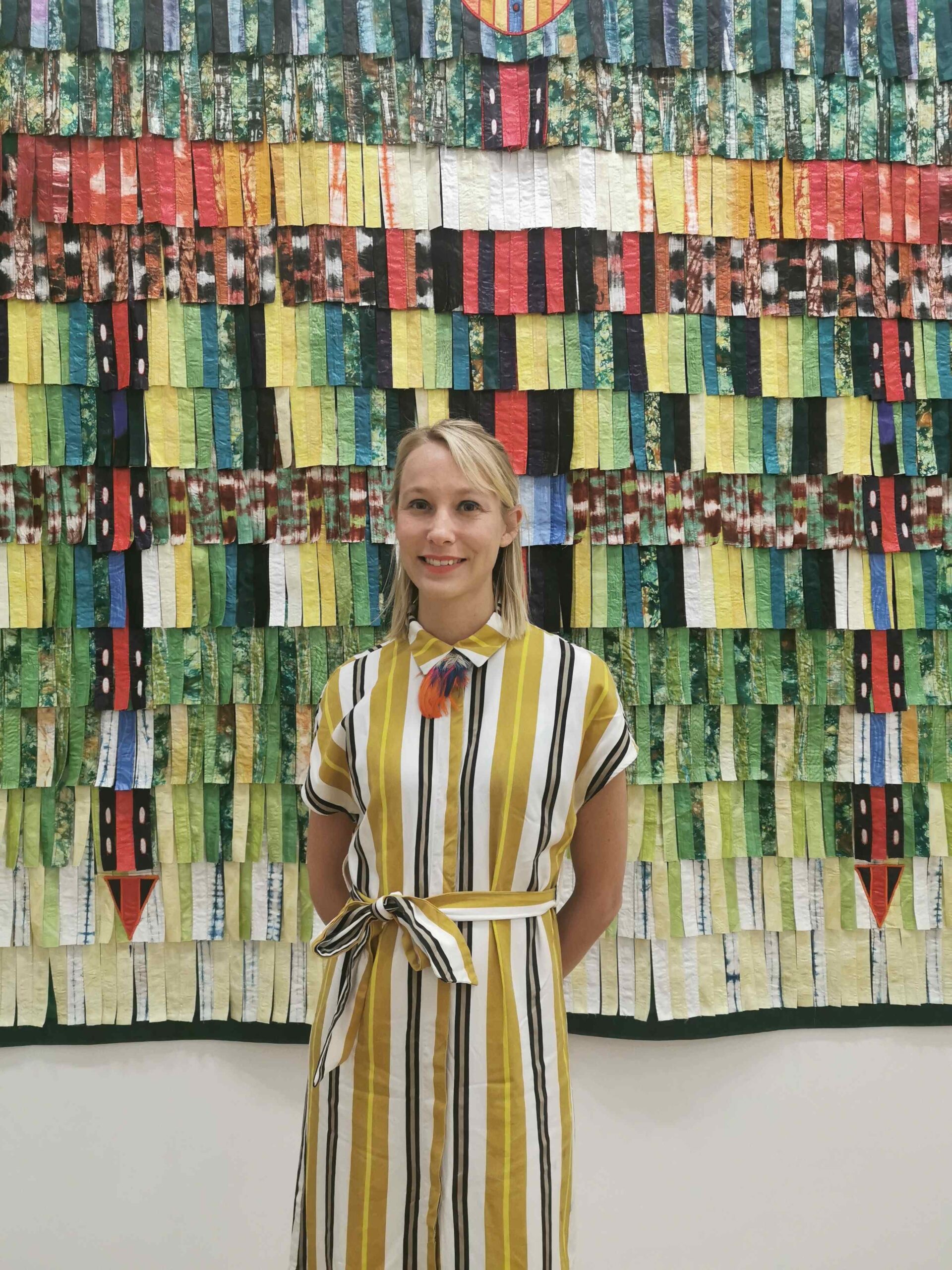Alicia Knock
Legacy Curator

- Museums
- Atlanta
“I hope to identify how the back-to-Africa movement has linked some twenty African American and diaspora artists to the Atlantic space, France, and the African continent.”
As curator in the Contemporary Creation Department at Centre Pompidou since 2015, I strive to use acquisitions and exhibitions to present a transnational history of art in the museum (Africa, Central Europe). My aim is for this history to reflect the geographical spaces traversed by the artists, as well as the traversals themselves, taking Paris as a recurring point of anchorage and transit. I am interested in artistic practices that revolve around resistance and political emancipation—often explored through notions of cultural mélange and reparations—in relation to colonial and postcolonial history, and to unwritten or overlooked narratives. I have explored these issues in the preparation of several exhibitions, such as Ernest Mancoba (2019) and Chine-Afrique (2020), and through the acquisitions presented in Global(e) Resistance (2020). Committed to chronicling a pan-African history of art starting from the advent of independence in the nations of the continent, I now intend to continue my past several years of research on the Black Atlantic through an investigation of artistic trajectories between Black America, the Caribbean, France, and Africa.
As Head curator for the Contemporary Creation and Prospective Department at Centre Pompidou, Alicia Knock seeks to develop a transnational history of art. Her acquisitions and exhibitions – Ernest Mancoba, 2019; Chine-Afrique, Crossing the World Color Line, 2020; Global(e) Resistance, 2020 – focus specifically on the modern and contemporary art of Africa and Central Europe. Concurrently, she seeks out other exhibition formats through dynamic, future-oriented projects that reflect on the museum of tomorrow (Museum On/Off, 2016). She is also interested in the visibility of women artists (La Terre la plus contraire, Fondation Fernet Branca, 2017; Soudain mon ombre s’est allongée, Bandjoun Station, 2018), and was responsible for curating the Albanian Pavilion at the 58th Biennale and co-curating an exhibition devoted to Boris Mikhailov at Kiev’s Pinchuk Art Centre in 2019.
By virtue of this residency, I hope to identify how the back-to-Africa movement has linked some twenty African American and diaspora artists to the Atlantic space, France, and the African continent. The subject of African Americans returning to Africa has been a major, cross-cutting issue throughout the Black intellectual history of the United States. It is marked by the history of Pan-Africanism in the first half of the 20th century, and the emergence in the 1960s of a wide-ranging movement of solidarity between struggles for Black emancipation in the United States (Black Arts Movement) and decolonization movements in Africa. These influences converged to form the dream of a new homecoming odyssey.
This research will follow in the footsteps of artists who traveled to Africa in the 1950s, driven by an emulation born out of pan-African festivals and backed by grants from active universities, such as Howard University. The following years gave rise to collective and individual networks, sparking an eagerness from artistic communities and individuals alike to draw inspiration from contemporary African art. The 1970s also saw an emergence of Afrocentrism under the impetus of Maulana Karenga and Molefi Kete Asante, which spurred a number of African American collectives, such as AfriCOBRA in Chicago, to set their sights on Africa. As a counterpoint, this research will also focus on the arrival of African artists to the United States from the 1950s onward, as well as on the history of pioneering institutions, such as the Harmon Foundation, and exhibitions (particularly in Dallas and Los Angeles). The aim of this project is to understand how contact with Africa enables artists to formulate a transnational vernacular, to create communities and collectives, and, more broadly, to rethink their working methods.
There is a vast, largely under-researched terrain to explore on the subject of the sources of Afro-Atlantic modernities. Most of the works and archives surrounding these figures, even those who lived in Paris, are currently conserved in the United States. One part of this project will involve traveling to the sites of these resources, such as essential archival collections at Hampton University, Howard University, the Smithsonian Institute, and the Library of Congress. My meetings with artists will also take me to Denver, Baltimore, and Atlanta, where I will gather accounts of these fascinating traversals.
Through another round of meetings, I look forward to forging connections with the realm of academia and research in the interests of sharing knowledge. Following a polyphonic, collaborative approach, the goal of this research is to bring together a variety of viewpoints (from African American, West Indian, and African figures researching the topic of the Black Atlantic). It will also involve a multidisciplinary aspect—by bringing music, literature, cinema, postcolonial studies, and African studies up against the visual arts—with a view to organizing workshops and artists interviews.
In partnership with

Centre Pompidou
Depuis 1977, le Centre Pompidou présente une riche programmation aux croisements des disciplines et des publics. Son bâtiment emblématique, qui abrite l’une des deux plus grandes collections d’art moderne et contemporain au monde, ainsi que des expositions, des colloques, des festivals, des spectacles, des projections ou des activités pour les plus jeunes, en font une institution sans équivalent, profondément ancrée dans la cité et ouverte sur le monde et l’innovation.
